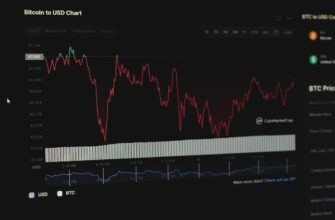- Staking Rewards Tax Penalties UK: Navigating HMRC Rules
- How HMRC Taxes Staking Rewards in the UK
- Penalties for Incorrect Staking Reward Reporting
- Calculating and Reporting Staking Rewards Correctly
- Legally Minimising Staking Reward Tax
- Staking Rewards Tax Penalties UK: FAQ
- 1. Do I pay tax if I reinvest staking rewards?
- 2. What if I stake via a UK-based exchange?
- 3. Can HMRC track my staking rewards?
- 4. Are penalties avoidable if I make an honest mistake?
- 5. How far back can HMRC investigate staking taxes?
Staking Rewards Tax Penalties UK: Navigating HMRC Rules
With cryptocurrency staking becoming increasingly popular, UK investors must understand the tax implications of their rewards. Staking rewards are taxable income in the UK, and failure to report them correctly can lead to significant penalties from HMRC. This guide explains how staking rewards are taxed, potential penalties for non-compliance, and practical steps to stay on the right side of the law. Whether you’re staking Ethereum, Cardano, or other proof-of-stake cryptocurrencies, this article will help you avoid costly mistakes.
How HMRC Taxes Staking Rewards in the UK
HMRC classifies cryptocurrency staking rewards as miscellaneous income, not capital gains. This means rewards are subject to Income Tax and National Insurance Contributions (NICs) when received. Here’s how it works:
- Tax Trigger: Tax is due when you receive staking rewards, calculated using the GBP value at the time of receipt
- Tax Rates: Rewards are added to your total taxable income and taxed at your marginal rate (20% Basic, 40% Higher, 45% Additional Rate)
- Reporting: Must be declared via Self Assessment using the SA100 form and SA105 supplementary pages
- Allowances: The £1,000 Trading Allowance may offset small staking incomes if eligible
Penalties for Incorrect Staking Reward Reporting
HMRC imposes strict penalties for errors or failures in reporting staking income. Consequences escalate based on severity and behaviour:
- Late Filing: £100 immediate penalty + £10/day after 3 months (up to 90 days), plus 5% of tax due or £300 (whichever higher) after 6/12 months
- Late Payment: 5% of unpaid tax at 30 days, 6 months, and 12 months overdue
- Inaccuracy Penalties: 0-30% for careless errors, 20-70% for deliberate underreporting, up to 100% for concealed evasion
- Failure to Notify: Penalties up to 30% of tax owed if you don’t register for Self Assessment when required
Penalties can compound quickly – a £5,000 unreported staking reward could trigger £1,500+ in penalties for a higher-rate taxpayer.
Calculating and Reporting Staking Rewards Correctly
Follow these steps to ensure accurate reporting:
- Track Rewards: Record date, amount, and GBP value of every staking reward at receipt
- Convert to GBP: Use exchange rates from credible sources (e.g., CoinGecko) at exact reward time
- Deduct Allowances: Apply the £1,000 Trading Allowance if total miscellaneous income is below threshold
- Report on SA105: Enter total staking income in Box 17 (Any other miscellaneous income) of Self Assessment form
- Pay by Deadline: Settle tax liabilities by 31 January following the tax year end
Example: You receive 1 ETH staking reward worth £1,800 on 15 April 2024. As a higher-rate taxpayer, you’d owe £720 Income Tax (£1,800 × 40%).
Legally Minimising Staking Reward Tax
While you can’t avoid tax entirely, these strategies may reduce liabilities:
- Utilise Allowances: Combine staking with other side incomes to maximise the £1,000 Trading Allowance
- Offset Expenses: Deduct direct costs like validator fees or dedicated hardware (requires evidence)
- Tax-Wrapper Strategies: Consider staking within an ISA if platforms support it (currently limited)
- Timing: Align reward receipts with lower-income years if possible
Always consult a crypto-specialist accountant before implementing tax strategies.
Staking Rewards Tax Penalties UK: FAQ
1. Do I pay tax if I reinvest staking rewards?
Yes. Tax applies when rewards are received, regardless of whether you hold, sell, or reinvest them. The taxable event is the receipt of the asset.
2. What if I stake via a UK-based exchange?
UK platforms may report your earnings to HMRC under Cryptoasset Reporting Framework (CARF) rules from 2026. However, you remain responsible for accurate reporting now.
3. Can HMRC track my staking rewards?
Increasingly yes. Through exchange data requests, blockchain analysis, and upcoming CARF regulations. Assume all transactions are visible to tax authorities.
4. Are penalties avoidable if I make an honest mistake?
You may qualify for Reasonable Excuse relief if you can prove the error was unintentional and you took reasonable care. Voluntary disclosure before an HMRC investigation also reduces penalties.
5. How far back can HMRC investigate staking taxes?
Typically 4 years for innocent errors, 6 years for careless mistakes, and up to 20 years for deliberate tax evasion. Keep records for at least 6 years.
Final Tip: With HMRC increasing crypto tax compliance efforts, maintaining detailed records and seeking professional advice is crucial. Penalties for mishandling staking rewards can exceed the original tax due – proper reporting protects your investments and peace of mind.








